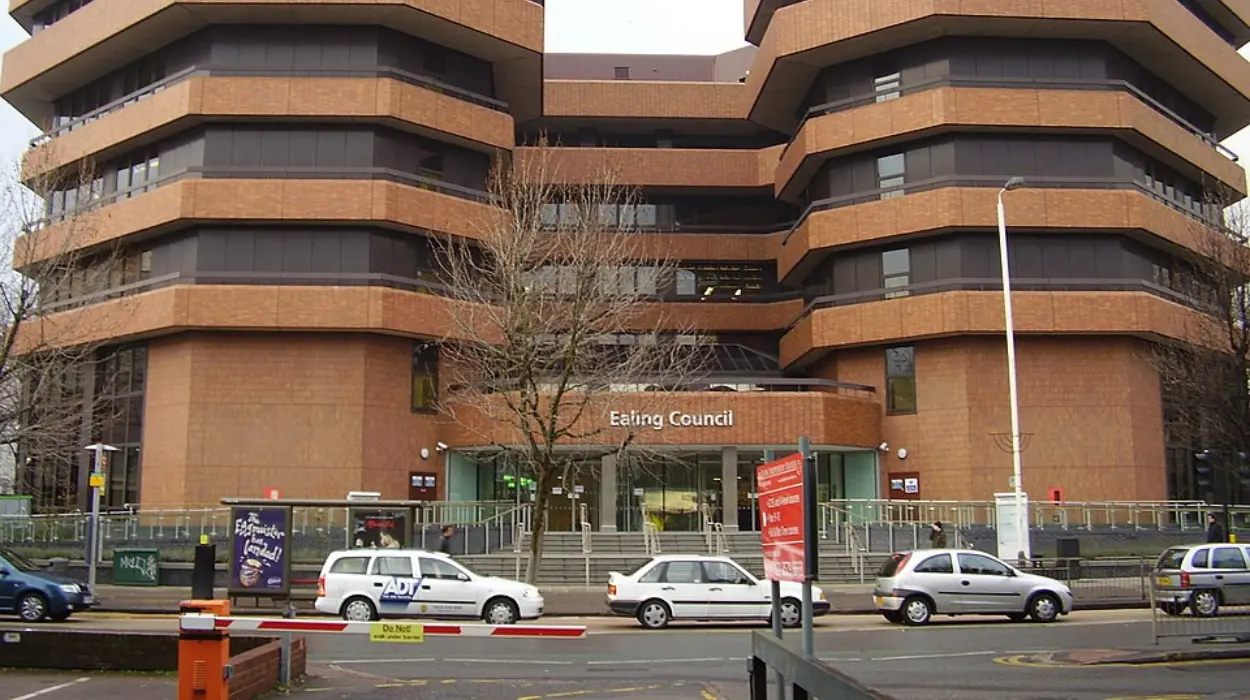Ealing (Parliament Politics Magazine) – Ealing Council raises the number of signatures needed for petition-triggered debates from 1,500 to 3,671, raising the threshold to 1% of the borough’s population.
The opposition leader has called the Ealing council’s decision to more than treble the number of signatures required to bring a petition to a discussion an effort to “shut people up.” After a vote on Tuesday, July 15, the council approved the policy.
Speaking outside the council before the meeting, Leader of the Liberal Democrats, Cllr Gary Malcolm, said:
“They are only bringing this in to shut people up.”
Cllr Malcolm was speaking to protestors from the Save Ealing’s Children’s Centres campaign.
Craig Smith, a prominent campaigner, expressed this opinion.
He told demonstrators:
“They are trying to rig the system against public engagement with local democracy.”
Cllr Shaw moved the motion, stating:
“We have had relatively little debates from petitions, but two in the last year, which is fine.”
Every current Labour council member supported the change, while every Conservative and Liberal Democrat council member voted against it.
A crowded public galley erupted in cries of “shame” and “disgraceful” at the confirmation that the motion had passed. Before creating a new plan, Ealing Council claims to have conducted a benchmarking exercise around London and to have consulted with all political factions within the council.
In Hounslow, formal action is triggered by 10 signatures; no further barrier is necessary if the issue is borough-wide. Rather, it is referred for review and discussion at the full council.
There is no minimum number of signatures required to start a debate in nearby Hillingdon, but once a borough-wide issue receives 100, council officers will formally review it and may call the petitioner to speak at a hearing. Five thousand signatures are needed in Hammersmith and Fulham to start a full council discussion.
A restriction on hybrid petitions (paper and electronic) was also approved by the Ealing Council. This strategy is different from those of the other boroughs because hybrid petitions are accepted by both the Hounslow and Hillingdon Councils.
The council describes it as “the fairest, most efficient, and most transparent way of managing petitions” and states that it will not erect any obstacles to democratic participation.
A council spokesperson added:
“Using the council’s system is the preferred method as it makes it quicker to see the open e-petitions and easier for residents to take part, ensuring live data of petitions being considered are all in one place including if they are at the debate threshold, and it helps to support the planning of council meetings.
This approach is no different to that of the UK parliament. It ensures signatures and addresses can be verified and do not get replicated, which is difficult and creates delays when using multiple other platforms and affects the number of signatures considered as valid.”
How will the new signature requirement affect petition success rates in Ealing?
Since the current barrier is set at 1% of the borough’s population, petitions require wider support, which may restrict the number of petitions that are eligible for debate, particularly those that deal with more specialized or specific topics.
It is anticipated that the more stringent criterion will reduce the number of resident-initiated debates, drawing council attention to matters that affect the entire borough but possibly ignoring smaller local concerns.
Although it is meant to prevent council agendas from being overloaded with petitions that have little support, it may deter grassroots activism and limit the chances for local voices to use the petition process to influence council decisions.
According to research, there are typically fewer successful arguments for petitions with greater signature requirements. because gathering thousands of legitimate signatures is difficult, especially with e-petition platforms.


